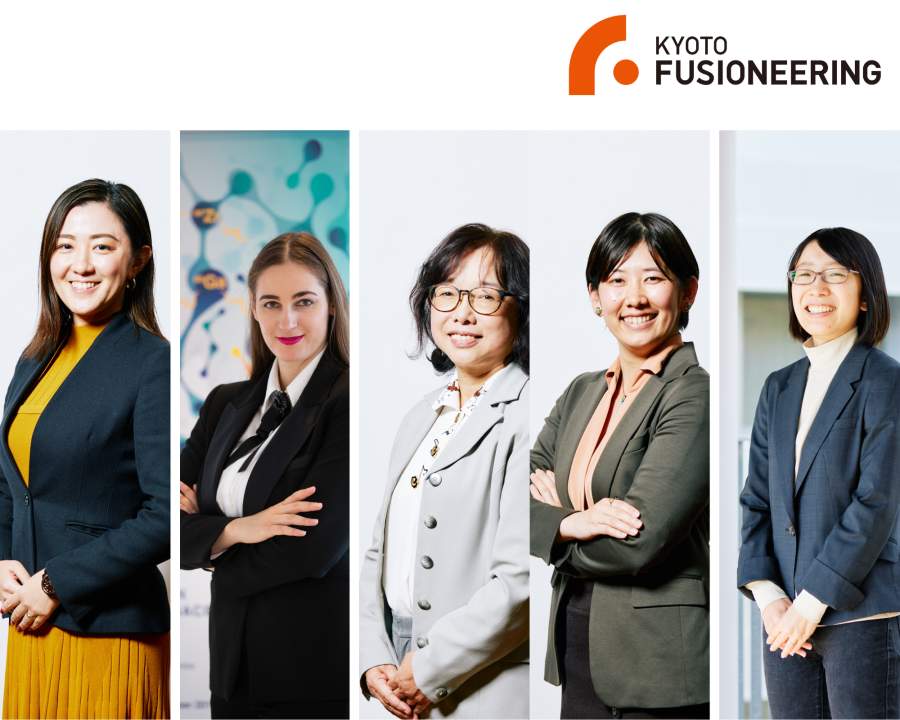
International Women’s Day is a reminder of all the endeavours that society as whole has overcome so far, and strive to overcome in the future, whilst remembering that part of ourselves remain in a condition of subjugation; a condition imposed over the course of centuries by systems of exploitation. The 8th of March is celebrated globally, and reminds us of the need for a society that is not only establishing new social relations but is also provoking a cultural transformation, upsetting the relations of authority between men and women and forcing each to rethink the nature of both. It is a reminder to celebrate progress achieved over the last few decades. Some key achievements are: more girls are going to school, fewer girls are forced into early marriage, more women are serving in parliament and positions of leadership, and laws are being reformed to advance gender equality.
Despite these advances, many challenges remain: discriminatory laws and social norms remain pervasive, women continue to be underrepresented at all levels of political leadership, and 1 in 5 women and girls between the ages of 15 and 49 report experiencing physical or sexual violence by an intimate partner within a 12-month period (Source: UN Women). The pandemic showed to the world that women are also harder hit by the economic impacts of COVID-19, as they disproportionately work in insecure labour markets. Nearly 60 percent of women are working in the informal economy, which puts them at greater risk of falling into poverty. The UN Women has chosen the theme for International Women’s Day 2022 to be “Gender equality today for a sustainable tomorrow”, and calls for climate action for women. Women and girls are also more likely to experience the greatest impacts of the climate crisis as it amplifies existing gender inequalities and puts women’s lives and livelihoods at risk. Women and girls are often primarily responsible for collecting fuel and water at the community level. Also, poor women tend to participate in the informal economic sector (for example, the food sector), which relies strongly on biomass as its main energy source. Indoor pollution from the burning of solid fuels is a serious health problem for women and girls. Every year, 4.3 million people – mainly women and children – die as a result of indoor air pollution. In 2012 alone, 7 million people died – representing one in eight of total global deaths – because of exposure to indoor air pollution, which confirms that air pollution is now the world’s largest single environmental health risk. Women are also exposed to other health risks likened to the toilsome work of energy collection.
Women spend considerable time gathering biomass for energy. Because they undertake these activities largely on foot, climate-induced scarcity of natural resources can exacerbate their time poverty, as women are forced to travel and spend more time collecting these resources, thereby causing them to lose out on other, self-nurturing activities such as education. Across the world, women depend more on, yet have less access to, natural resources, and often bear a disproportionate responsibility for securing food, water, and fuel. Energy poverty is a worldwide phenomenon, although it is most intense in developing countries and especially affects women, who are the main users and producers of household energy. In some OECD countries, it is estimated that up to 30% of households live in energy poverty, limiting women’s and girls’ access to education and economic opportunities, and disproportionately exposing them to health risks. Women also have a chance to play a central role in the transition to clean energy as consumers, helping to shift energy consumption and by leading transformative change in the energy industry. Achieving greater gender diversity in company boards and senior management positions could help to accelerate the green transition, as it would allow for a more effective integration of environmental and gender goals.
Within this transition, women have a central role to play as energy professionals, energy decision-makers and energy consumers. For instance, women and men reveal different preferences for energy policy options, especially when it comes to the energy transition and the adaptation of renewable energy (Fraune, 2016[38]). However, energy policy is often gender-blind and women tend to be underrepresented in the energy sector at all levels, including in bottom-up approaches such as community-based solutions (Fraune, 2015[39]). Acknowledging the benefits of a green transition for gender equality, and the role women could play in the clean energy sector due to their behavioural preferences, calls for an urgent action to eliminate structural barriers for women’s participation in labour force and decision-making in the energy sector (Clancy and Feenstra, 2019[40]).
Fusion has the potential to be one of the most environmentally friendly sources of energy. The fusion reaction does not produce CO2 and fusion reactors will not produce long-lived high level nuclear waste. As a technology with no harmful atmospheric emissions, fusion will not contribute to greenhouse gas emissions and will also have a direct and dramatic impact on women’s access to energy. In short: fusion can be transformative for the planet and especially for women. Within the fusion industry, inspiring women are moving the needle, both in terms of fostering the development and conversation around fusion science and in entrepreneurial endeavours. Some key persons are:
Melanie Windrige is a plasma physicist specialising in fusion energy. She has held the position of UK Director at the Fusion Industry Association. She is an inspirational speaker who has delivered countless lectures at festivals, events and schools, and is the author of the award-winning book Aurora: In Search of the Northern Lights and Star Chambers, an introductory book on fusion energy. In addition, she found fusion energy insight which is a platform that curates fusion insights. Another platform that Melanie has initiated is the instagram account that acts as a flagship for women working in fusion energy, and also the Linkedin Group Community “Women in Fusion”. In Melanie´s case we have a role model. Role models can have a dramatic influence on whether or not young women pursue STEM subjects in school and STEM related careers. In fact, research shows the number of girls interested in STEM almost doubles when they have role models (41%) compared to those who do not (26%). Melanie has not only exemplified the lux et veritas but also has shown leadership in creating a platform where like-minded female scientists can connect to one another in hopes of fostering a culture of strong female leadership within the field.
The Fusion Focused Podcast is an initiative led by Ella Fox-Widdows to highlight inspiring experts within the Fusion Energy community, and showcases the diverse careers available within the fusion field. Ella Fox-Widdows is currently a PhD student on the UK Fusion CDT programme at the University of Liverpool, studying diagnostics for atoms and molecules in edge plasma. She has provided a platform whereby she has consciously selected gender-diverse panellists. In Ella´s case we have someone who is making tangible steps to achieve gender diversity in the industry and business, by committing to gender diverse interview panels.
Women in Fusion is another network community launched on 8 March 2022 as an independent group from female professionals in the fusion industry. On International Women’s Day, Women in Fusion prepared a video where they recognized and honoured the contributions of women across the globe who are working to make fusion a reality. In this case we have the creation of networks and recognising and publishing women’s contribution to the industry. Hence, these are both activities to gender mainstreaming. Women’s networks are crucial for equality. They provide close connections to other women who might encounter similar struggles while still creating a diverse enough environment for personal and professional growth.
The IAEA has organised several side events to encourage young women to pursue careers in fusion science. The webinars have featured women who are renowned fusion experts and who have highlighted their own career paths and what motivated them to start working and stay in this field and why fusion offers a promising career for women. Sehila Gonzalez de Vicente, Nuclear Fusion Physicist at IAEA has moderated and led the webinars series. In the case of IAEA we have events that are women-focused. Such events are important because they directly support and advocate for the representation of women in the nuclear fields.
In the startup world, where the early years are an economic struggle, few leaders have little interest in a more gender-equal world. However, Kyoto Fusioneering has taken a different stand. Today, we want to shed some light on the gender policies that Kyoto Fusioneering applies to its workplace to promote gender equality. It’s part of our ethical leadership to speak a gender neutral language. The cofounder and UK Director of KF, Dr Richard Pearson, is a champion of women in fusion and supports women in fusion in all their diversity and abilities inside and outside the KF. His dedication is exemplified by his current role in helping Dr Melanie Windridge maintain her Fusion Energy Insights initiative as Guest Host during a period in which she is unavailable. Inside KF offices in the UK, Dr Richard Pearson, started to utilise the company culture by promoting gender equality in the workplace. Company culture forms the basis of behaviour at all levels within the company and is key to changing workplace attitudes. As such KF UK recognises the effect of unconscious gender bias in the workplace. Unconscious gender bias is defined as unintentional and automatic mental associations based on gender, stemming from traditions, norms, values, culture and/or experience, which feed into decision-making, enabling a quick assessment of an individual according to gender and gender stereotypes. Gender stereotypes shape women’s journeys in their career, and can have a lasting impact on aspirations, confidence and behaviour. Hence, KF UK is committed and has taken concrete steps to dismantling the gender stereotypes in the workplace.
The first step is:
- Increase understanding of all KF employees of how gender stereotypes shape women’s lives by providing video training.
- Raise awareness about how gender stereotypes shape the realisation of rights and equal opportunities in the workplace by discussing video training and applying it in our workplace.
Fusion energy has the potential to end energy poverty and as such gender inequalities caused by lack of access to energy. To achieve the latter, in a sustainable way that has learned from the mistakes of previous energy policy approaches, the involvement of women is needed in all the decision making processes starting from the technology design to fusion energy policies.
About the Author
Vojna Ngjeqari joined Kyoto Fusioneering in 2021 as Business and Marketing Specialist. Before joining the company, she worked as a Fundraising Consultant at the International Atomic Energy Agency (IAEA) in Vienna, Austria. During her time at IAEA she conceptualised the side event and network creation of IAEA Women in Radiopharmacy in collaboration with Women in Nuclear Organisation. Vojna is an advocate of women’s rights and gender mainstreaming and applies the lenses of gender perspectives in all of her activities at Kyoto Fusioneering.




